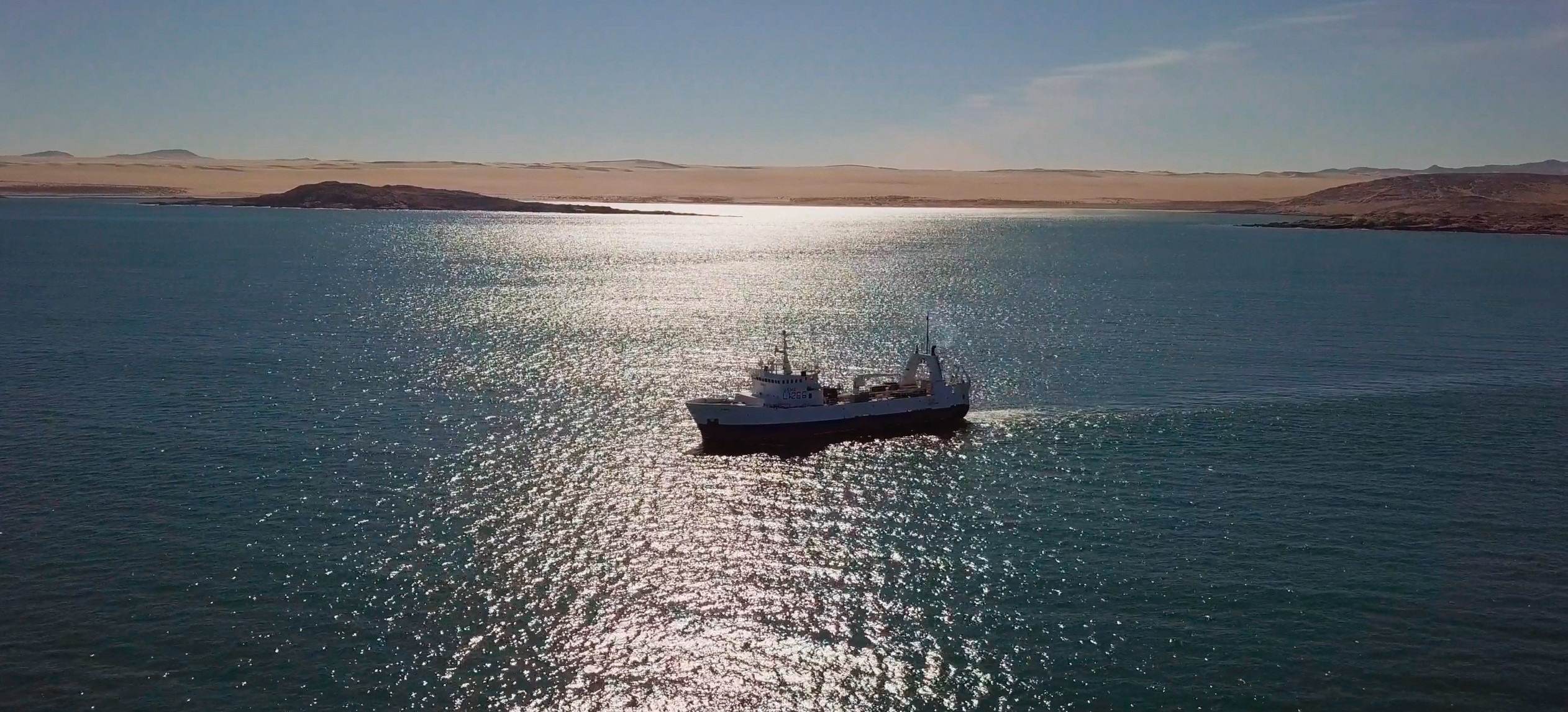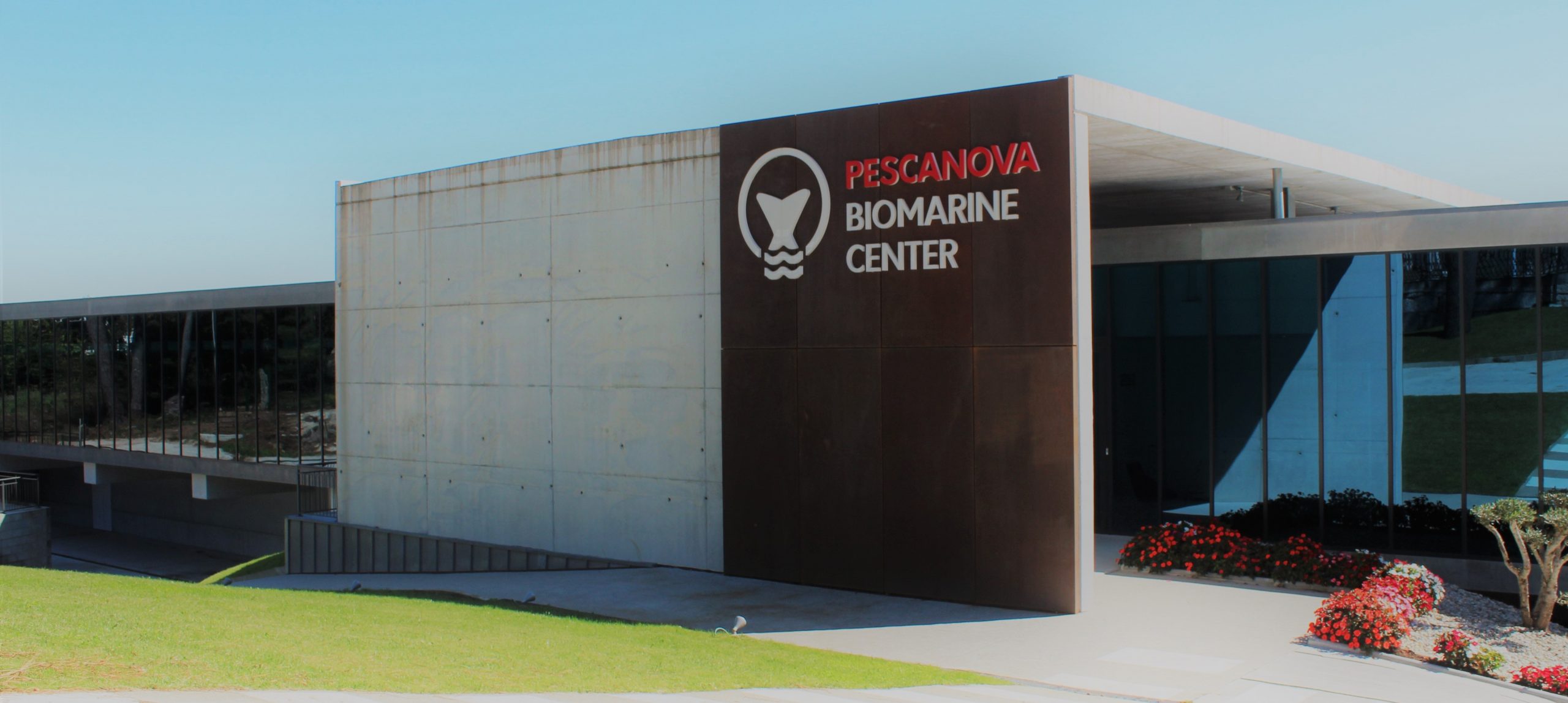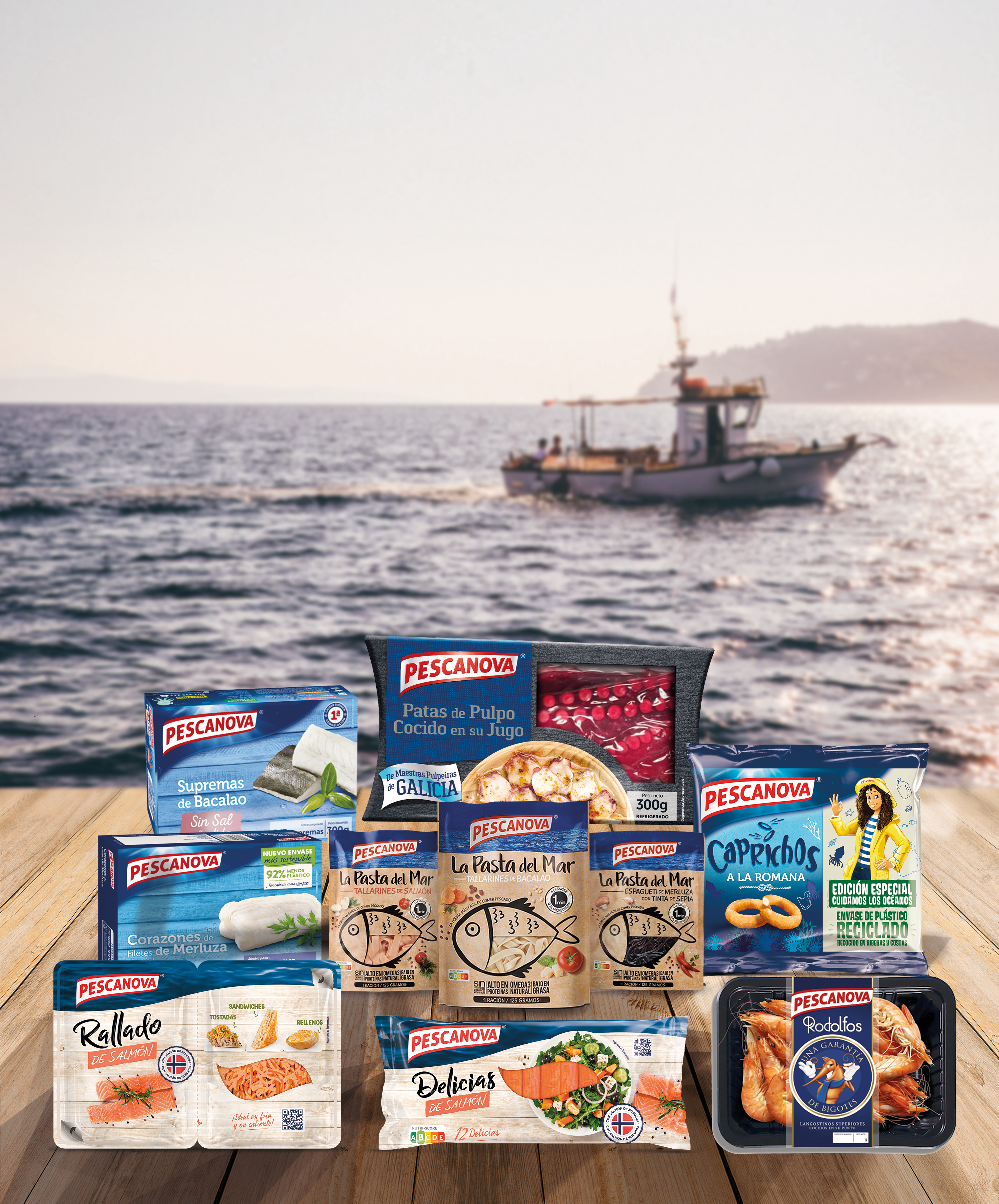Innovation
Pescanova was created from an innovation: the on-board freezing technology. Since then, not a day goes by without thinking about how we can improve all our processes, making them more competitive and sustainable and, more importantly, developing new technologies, production methods and products.

New technologies
Borrowing concepts from the meat industry in terms of cold preservation, Pescanova invented in 1961 the on-board freezing technology, used for the first time on the vessel “Lemos”. It was the world’s first transoceanic freezer vessel.
A technological revolution that made it possible to start fishing in the rich and remote fishing grounds of the Southern Hemisphere, deep-freezing the catch on board for its correct preservation and thus radically changing the global fishing industry.

Fishing methods
In 1963 we built the first stern trawler of the Spanish shipbuilding industry, able to fish over the stern rather than over the side, the “Villalba”, which was a major step forward to increase our fishing capacity.
Many other innovations followed, placing Pescanova at the forefront of the global fishing industry.

Aquaculture
We have not stopped innovating in aquaculture since we became involved in this field back in the 80s to increase our productivity while ensuring the rationalization of marine resources. From the implementation of new aquaculture techniques in the shrimp farms of Ecuador, Guatemala and Nicaragua, the turbot farms of Spain to the spearhead of research, development and innovation in the Nueva Pescanova Group: the Pescanova Biomarine Center.

The Pescanova Biomarine Center, at O Grove (Galicia, Spain), is our aquaculture R+D+i centre. It is the first private aquaculture research center in Spain and one of the three most important in Europe.
It has a space of 4,000 m2 and is equipped with state-of-the-art technology for aquaculture research and a museum dedicated to the sea.
This is where a group of researchers work on the study of genetics, nutrition, health and animal welfare. This team aims not only to improve the farming of species such as turbot and vannamei shrimps, but also to develop techniques that will enable to farm new species. As a matter of fact, in 2019 the team achieved a world milestone by completing, for the first time in history, the octopus reproduction cycle in aquaculture, ensuring that not only the specimens born in this facility reached adulthood, but also that they could reproduce outside their natural habitat.

Product
We pioneered the introduction of deep-frozen fish in several countries, creating a new category that quickly became part of the consumption habits of millions of consumers. Innovation has been part of our DNA since our origins and, for this reason, we work focused on responding to the needs of our consumers through innovative, healthy and nutritious solutions that provide them with added value.
We want to be the best food company bringing the freshness of the sea to the consumer’s table and we have a huge asset: we can offer all the guarantees of quality, safety and sustainability since we cover the entire value chain, including fishing and farming until the product reaches the consumer’s home.


